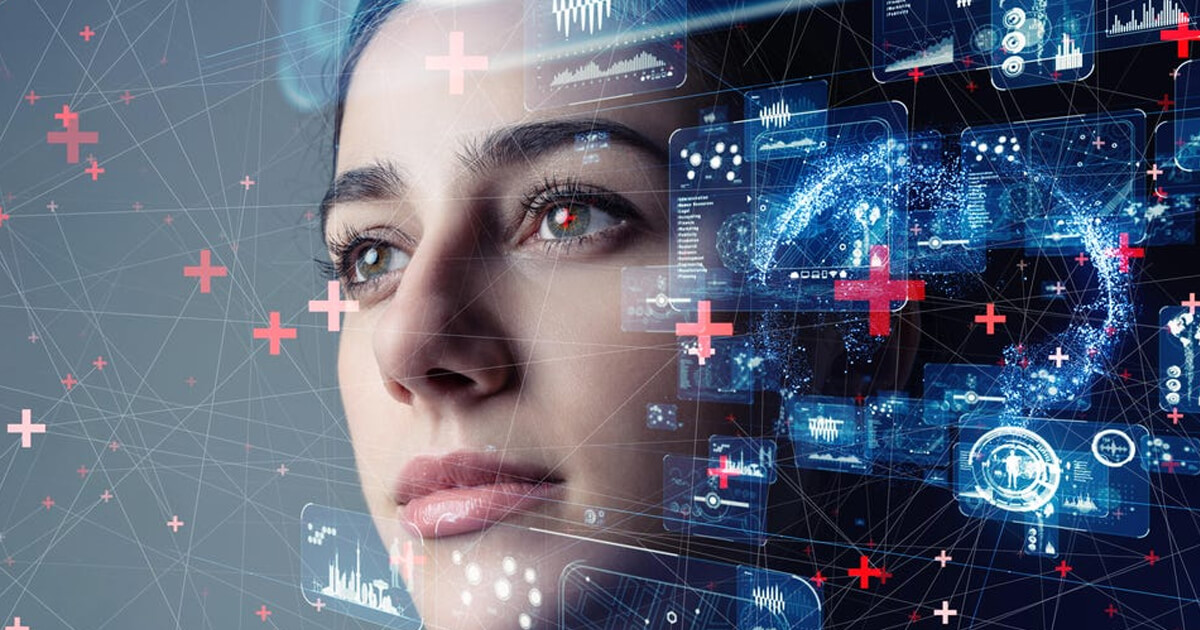In today’s rapidly advancing technological landscape, Augmented Intelligence has emerged as one of the most transformative concepts in the field of artificial intelligence (AI). Unlike traditional artificial intelligence, which focuses on automating tasks and replacing human decision-making, Augmented Intelligence emphasizes the synergy between human capabilities and machine intelligence. This fusion aims to enhance human performance and decision-making rather than replace it. In this article, we will explore the concept of Augmented Intelligence, its key characteristics, applications, and the potential it holds for the future.
What is Augmented Intelligence?
Augmented Intelligence refers to the use of AI systems to assist and enhance human capabilities, particularly in decision-making processes. The primary goal of augmented intelligence is not to replace humans but to augment their intelligence and cognitive abilities. This collaboration between human expertise and machine learning algorithms helps individuals make more informed and accurate decisions by processing large datasets, identifying patterns, and providing actionable insights.
While artificial intelligence (AI) generally focuses on automating tasks or performing them autonomously, Augmented Intelligence emphasizes the interaction between human judgment and machine assistance. The machine assists in processing and analyzing vast amounts of information, while humans bring in context, creativity, and emotional intelligence, which machines are yet to fully replicate.
Key Characteristics of Augmented Intelligence
1. Human-Centric Approach
One of the defining features of Augmented Intelligence is its human-centric approach. Instead of focusing on replacing human workers or decision-makers, the goal is to make humans more effective in their roles. It empowers individuals to make better decisions by providing them with insights that they might otherwise overlook or be unable to analyze due to time and cognitive limitations.
2. Collaboration between Humans and Machines
Augmented Intelligence is fundamentally based on collaboration between humans and machines. AI technologies are used to augment human capabilities rather than replace them. For example, in the healthcare industry, AI can help doctors by analyzing patient data and recommending treatment options, but the final decision remains with the physician. The combination of human expertise and AI tools creates a more powerful decision-making process.
3. Data-Driven Insights
One of the key aspects of Augmented Intelligence is its ability to process and analyze vast amounts of data quickly. AI systems can identify trends, patterns, and correlations in complex datasets that would take humans a long time to process manually. These insights are presented to users in an easily interpretable format, allowing them to make more informed decisions.
4. Adaptability and Learning
Augmented Intelligence systems are typically built on machine learning and deep learning algorithms that can continuously improve over time. These systems learn from new data and feedback from users, becoming more accurate and effective at providing insights. This adaptability ensures that AI systems evolve alongside the changing needs of human users.
Applications of Augmented Intelligence
Augmented Intelligence is being deployed across various industries to enhance human decision-making, optimize processes, and improve outcomes. Let’s take a closer look at some of the key sectors where Augmented Intelligence is making an impact:
1. Healthcare
In healthcare, Augmented Intelligence has the potential to revolutionize patient care and medical research. AI-powered systems can assist doctors in diagnosing diseases, recommending treatments, and predicting patient outcomes by analyzing medical records, diagnostic images, and genetic data. For example, AI algorithms are increasingly being used to detect early signs of diseases like cancer in medical images, which can lead to earlier and more accurate diagnoses.
However, Augmented Intelligence in healthcare does not replace doctors; it complements their expertise. Physicians can leverage AI insights to make better treatment decisions and improve patient outcomes. Furthermore, AI systems can help reduce administrative burdens, allowing healthcare professionals to focus more on patient care.
2. Finance
The financial industry is another area where Augmented Intelligence is transforming decision-making. Financial institutions are using AI to analyze market trends, detect fraud, and assist in risk assessment. Augmented Intelligence systems can process large datasets, such as financial transactions and market behavior, to identify patterns and trends that humans might miss.
For instance, in investment banking, AI can help portfolio managers make data-driven investment decisions, while in personal finance, it can offer tailored advice to individuals on budgeting and saving. Augmented Intelligence can also be used to detect fraudulent activity by analyzing patterns in transactions and flagging anomalies for human investigation.
3. Manufacturing and Supply Chain
In manufacturing, Augmented Intelligence is enhancing production efficiency and optimizing supply chains. AI-driven systems can monitor equipment performance, predict maintenance needs, and analyze production data to optimize workflows. These systems help human workers make decisions on production schedules, inventory management, and quality control, improving overall productivity and reducing operational costs.
For instance, in predictive maintenance, AI algorithms can analyze sensor data from machinery to predict potential failures before they happen, allowing companies to schedule maintenance proactively and reduce downtime.
4. Customer Service
Augmented Intelligence is increasingly being used to enhance customer service experiences. AI-powered chatbots and virtual assistants can provide instant responses to customer queries, resolving common issues without human intervention. However, when the issue is more complex, the AI system can escalate the problem to a human representative who can provide more personalized assistance.
This combination of AI and human interaction leads to faster response times, improved customer satisfaction, and reduced workloads for customer service teams.
5. Education
In education, Augmented Intelligence has the potential to revolutionize personalized learning. AI-driven platforms can analyze students’ learning patterns and adapt educational content to meet their individual needs. Teachers can use these insights to offer targeted support to students, ensuring that they receive the right level of instruction based on their strengths and weaknesses.
Additionally, AI can automate administrative tasks such as grading, freeing up teachers’ time to focus on more impactful activities like mentoring and lesson planning.
Challenges and Ethical Considerations
While Augmented Intelligence presents numerous benefits, it also raises several challenges and ethical considerations that must be addressed.
1. Data Privacy and Security
The effectiveness of Augmented Intelligence relies heavily on the collection and analysis of large datasets. However, this raises concerns about data privacy and security. Sensitive personal information, especially in sectors like healthcare and finance, must be protected from unauthorized access and misuse. Striking a balance between data utilization and privacy protection is crucial.
2. Bias in AI Systems
AI algorithms are only as good as the data they are trained on. If the data contains biases, the AI system can perpetuate and even amplify those biases in its decision-making. For example, biased data in hiring algorithms can lead to discrimination against certain groups. Ensuring that AI systems are trained on diverse, unbiased datasets is essential to avoid these issues.
3. Job Displacement Concerns
Although Augmented Intelligence is designed to complement human work, there are concerns that it could lead to job displacement in certain industries. As AI systems become more capable, there may be a reduced need for certain human roles, particularly in repetitive tasks. However, proponents argue that Augmented Intelligence will create new job opportunities by enabling humans to focus on higher-level, creative, and decision-making tasks.
The Future of Augmented Intelligence
The future of Augmented Intelligence holds immense potential. As AI technologies continue to evolve, their ability to assist humans in complex decision-making processes will only improve. We can expect to see more seamless integrations between AI systems and human users, leading to more efficient workflows, improved decision-making, and enhanced problem-solving capabilities.
Furthermore, as the ethical challenges surrounding AI are addressed, we can anticipate the widespread adoption of Augmented Intelligence across even more industries, leading to smarter, data-driven decision-making in everyday life.
Conclusion
Augmented Intelligence represents a paradigm shift in the way humans interact with machines. By focusing on collaboration rather than replacement, it enables individuals to make better decisions, optimize workflows, and enhance overall productivity. As AI technologies continue to evolve, the potential for Augmented Intelligence to revolutionize industries and improve human lives is vast. However, it is important to address the ethical considerations surrounding its implementation to ensure that it is used responsibly and equitably.




Leave a Reply